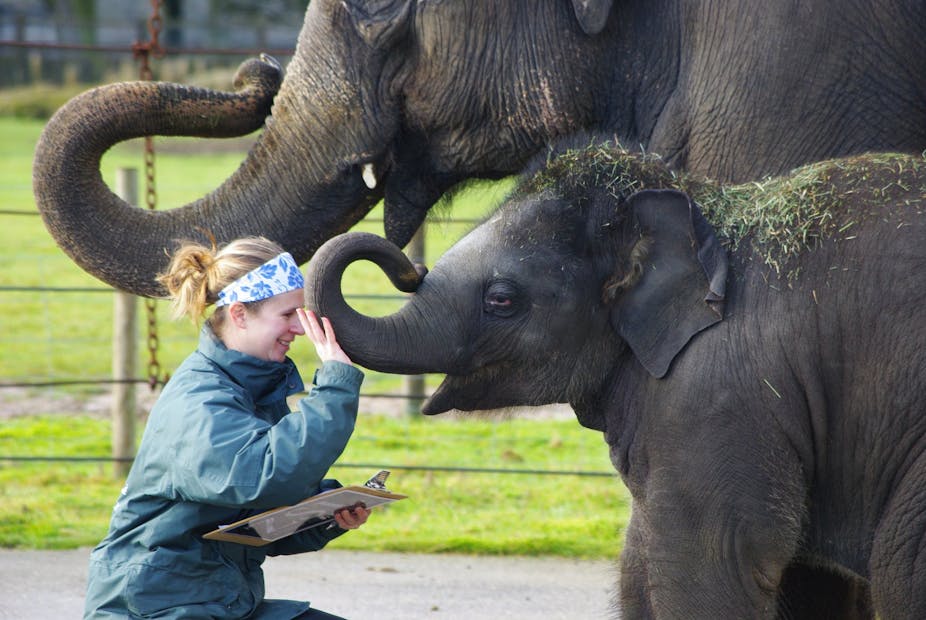More than 20 years ago, the university department where I was doing my PhD was fire bombed by animal rights activists. At the time, I was conducting research into animal welfare, as were many of the staff in my department. I found it hard to understand why a research department whose main objective was to improve the well-being of animals would be the target for such an attack.
I suspect most people, as I did then, see animal welfare and animal rights as synonyms. In reality, however, they are at opposite ends of the continuum concerning our treatment of animals.
Proponents of animal welfare are interested in questions like: “How can we improve the well-being of zoo animals?” Whereas animal rights supporters ask questions like: “Should we have zoos?”
These are very different questions with diametrically opposed outcomes: the constant improvement of zoos or their closing down. Both could be argued to improve animal well-being, but one is highly pragmatic, whereas the other is philosophical.
Cost-benefit analysis
Accepting and working with the status quo that animals are used for important research or housed in zoos for conservation purposes, my job as an animal welfare scientist is to maximise their well-being in these situations. Much of my work is based on the ideas of the utilitarian philosopher Jeremy Bentham who famously said of animals and their well-being:
The question is not: ‘Can they reason?’ Nor: ‘Can they talk?’ But: ‘Can they suffer?’
Bentham, importantly, put the focus on the practical question of suffering, moving the debate away from human-animal comparisons, and brought in the concept of a cost-benefit analysis.
Human activities affect the well-being of animals to different degrees and society uses Bentham’s cost-benefit analysis to determine whether what we are doing is acceptable. For example, treatments for diabetes were developed on animals in laboratories. These, animals paid the cost with theirs lives and, consequently, hundreds of millions of people, presently, benefit from a treatment for a terrible disease. This cost-benefit analysis is enshrined in many laws relating to animal welfare.
The role of animal welfare scientists is, on a practical level, to improve animal well-being. On a philosophical level, it accepts some of the ways that human activity impinges on the well-being of animals and works to minimise their cost and maximise the benefits to them.
From this perspective, it can be argued that animal welfare research justifies the continued use of animals by humans, be it for research, for food or in zoos. The support for the continued use of animals for scientific purposes is a particular cause of conflict with animal rights activists – hence why my university department was fire bombed.
Human concerns
I believe we should do our utmost to improve constantly the conditions of animals affected by human activities. Like animal rights advocates, my concern is to improve the lot of animals. But, while their approach is to abolish the use of animals, my approach is to work with animal industries. We take a pragmatic stance that it is impossible for modern society to function without using animals – be it for food or for medical research.
Most people I suspect have sympathy for the welfare and rights approach, depending on the issue at hand. I, for example, would not support research to improve the wellbeing of whales being hunted for scientific or other purposes. There is, in my opinion, no humane way to kill whales and I disagree with exploiting highly sentient animals when the capacity to suffer seems to be linked to cognitive abilities.
But I have to admit when the use of animals affects my life directly then I am more likely to support an animal welfare approach. In the past few years, several members of my family have had life-threatening conditions and all have survived due to medical care based on research using animals. Therefore my interest in this subject derives from what John Stuart Mills called “enlightened self-interest” – that is, we have a moral obligation to take care of the animals who improve our well-being.
Just like voting for a political party, before you pin your flag to one cause or another be sure you understand the implication of your choice and that you are prepared to live with it. This might be animals being held in imperfect conditions, but conditions that are improving, or a world without zoos and limited medical advances.

